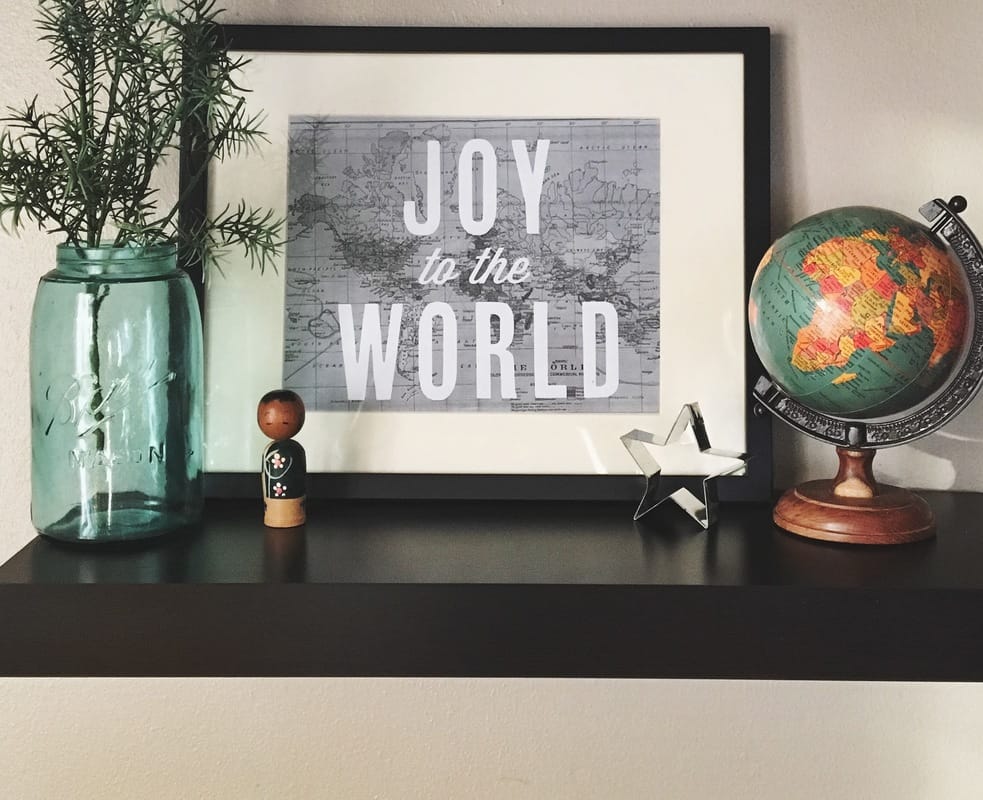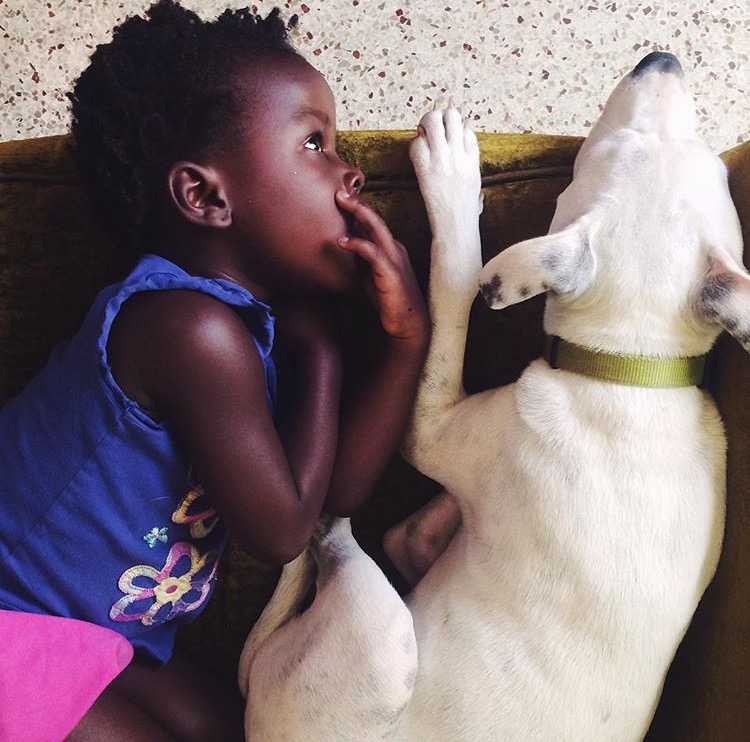|
We kick off this episode by naming our favorite Christmas songs: Lori kicks it old school with Chris Tomlin, Lindsy shines new light on The Little Drummer Boy, and Shannon hops down a rabbit trail on why Catholics wait so long to decorate their trees!
The conversation turns serious as we mull over the ways "joy" differs from "happiness" or "peace". We talk about the possibility of one without the other, and discuss whether circumstances can or should rob us of joy. “There are Christians whose lives seem like Lent without Easter… of course joy is not expressed the same way at all times in life… {it} adapts and changes, but it always endures, even as a flicker of light born of our personal certainty that, when everything is said and done, we are infinitely loved.” - Pope Francis, The Joy of the Gospel In true Upside Down style, we can't let a single podcast go by without talking about the marginalized and social justice. The issue of great joy for all people comes up and we mull together over the implications of that, and what our role in that is. Shannon confesses a sin of wanting to deny others their joy, and we all agree that jealousy can all too often cause us to resent the joy of our neighbor. Kayla hits the point home with a quote by Jürgen Moltmann: “Sometimes it seems to me that compassion with the suffering of others is easier than the compassion with the joy of others. We feel so good if we can have mercy with somebody else, and we feel some envy if somebody else feels joy and success.” We wrap up the show by comparing the different ways we each navigate gifts for our kids at Christmastime, and are unsurprised to find that we each have slightly different approaches. Lindsy's family is doing Legoland instead of gifts this year but shhhh, don't tell her kids! After listening, we'd love for you to leave a rating and review on iTunes! One of the best parts of this podcast experience has been interacting with listeners, so please find us on Facebook and Instagram. Tell us what you think, ask questions, and connect with others in this #upsidedowntribe. Grace and peace from Iowa (brrrrr!), Shannon
1 Comment
On today’s bonus episode, we’re chatting with Tyler Burns, a youth pastor from Pensacola, FL, who serves as co-host for Pass the Mic, a podcast powered by the Reformed African American Network. Lindsy Wallace interviews Tyler and co-hosts Kristi James and Lori Harris weigh in and pose relevant questions to drive the conversation towards ways that white people can come alongside their neighbors and love well.
The reality of the fall means that we live in a broken world with broken systems and the world is pushing against everything that God desires for racial reconciliation. We see evidence of this truth online and on the nightly news and in our everyday lives. The world is broken and yet, as Christ followers, we know that in Christ, we have been reconciled to God and to one another through the cross. So while we’re on this earth, how do we live as reconciled children of God and act as agents of reconciliation as Christ followers? The answer is simple: We must hold truth of scripture in one hand and the reality of our current world in the other and set wrong things right. Have you ever wondered about The Talk? You know, that conversation black parents have with their kids about how to interact with the police? Depending upon where you live, you may not even be aware that The Talk is an integral part of rearing black kids. The Talk is essentially a set of instructions for children on how to interact with law enforcement so that children can learn to navigate society with their blackness in mind. And at its root, the overarching message of The Talk is this: Don’t give the police a reason to kill you. If you’re white like me, the truth of this reality may hit you like a punch in the gut. Or it may seem silly or unnecessary. Or like a perpetuated narrative that isn’t helping the climate of America. But as Christ followers who hold the scripture in one hand and hold the broken world and her broken systems in the other, we should lay down our initial gut reaction to The Talk and listen with ears to hear the groaning of our black neighbors. And friends, The Talk is our neighbors’ groaning of injustice. So I encourage you to spend five minutes on your face before Jesus, asking Him to search your heart and reveal to you any sin hidden away, and then take a listen to our interview with Tyler Burns. Maybe listen to it twice and then check out Pass the Mic. Or spend a week searching the scriptures that Tyler references {Colossians 1, Ephesians 2, Revelations 5, 7, 9) in regards to what the Bible says about racial reconciliation. Find us on Instagram or Facebook and join the conversation. Grace + peace, Lori Never Miss an Episode: Subscribe to our newsletter. Episode 06 - Loneliness in the Kingdom of God: Unscripted Conversations on Life and Faith12/6/2016 In this episode, we're diving deep into loneliness in the Christian life. Inspired by listeners reaching out, we ask the question: Why is it easy to feel lonely in this Kingdom of now and not yet? We hear you when you say you've experienced deep loneliness in your walk with Christ. In your relationships. In your ministries. In your parenting journeys. We hear you when you say you've wrestled as a discple of Christ trying to be obedient to God's Upside Down Kingdom while surrounded by lack of likeminded community or family. Even in this advent season, pangs of loneliness bubble to the surface, too. I'm grateful to have lead this conversation on loneliness in this faith journey. It's heavy and rich and there's a lot to unpack -- but wow. As Lindsy says, following Jesus isn't popular. Even among other believers. In times of isolation, we have a desire to tell ourselves "it's going to get better." But it's not necessarily true this side of Heaven. We're promised Christ, yes, and we have the Ultimate Hope: but being a Christ follower is accepting some degree of loneliness. In "The Cost of Discipleship” by Deitrich Bonhoeffer, (on page 105 if you're reading along!) he talks about “discipleship and the individual”: "Through the call of Jesus men become individuals. Willy-nilly, they are compelled to decide, and that decision can only be made by themselves. It is no choice of their own that makes them individuals: it is Christ who makes them individuals by calling them. Every man is called separately, and must follow alone. But men are frightened of solitude, and they try to protect themselves from it by merging themselves in the society of their fellow men and in their material environment. They become suddenly aware of their responsibilities and duties, and are loath to part with them. But all this is only a cloak to protect them from having to make a decision. They are unwilling to stand alone before Jesus and to be compelled to decide with their eyes fixed on him alone. Yet neither father nor mother, neither wife nor child, neither nationality nor tradition, can protect a man at the moment of his call. It is Christ’s will that he should be this isolation, and that he should fix his eyes solely upon him." Bonhoeffer asserts this idea that we have to lose to gain: Specifically, that we have to lose some aspect of community before we can -- through Christ -- have redeemed relationships. He says that relationships before Christ weren’t fully relationships -- only through Him can we have true, authentic relationship. As Lori mentioned, if we only experience Christ in community, things become muddled. Do we idolize community? Are we finding our identity in our community? What happens when we cut the noise and seek the Solus Christus life? Maybe in the in-between, there's sancification. And maybe that's lonely. And maybe that's okay. We have to take responisbility to follow him where he wants us to go, even if it's lonely. Maybe periods of isolation -- of stripping bare -- are what God can use before He launches us into something big. Listen and go forth, sons and daughters of the King: Take a breath and take Lindy's advice of preaching the Gospel to yourself, returning to the Cross and becoming whole -- even in the midst of the painful -- yet holy -- periods of isolation. I'll leave you with Lori's words: "There's abundant life in the hard. Because it's Christ. He's in the hard place." We want to hear from you: What stood out to you in our conversation? What have you learned about God in your seasons of isloation? Find us on Instagram or Facebook and join the conversation. Grace + peace from wintery Iowa, Kayla Never Miss an Episode: Subscribe to our newsletter. |
SHOW NOTESCheck out links & details to what we've talked about in every episode! ARCHIVES
September 2017
CATEGORIES |
About |
Join Us |
© COPYRIGHT 2015. ALL RIGHTS RESERVED.
|






 RSS Feed
RSS Feed